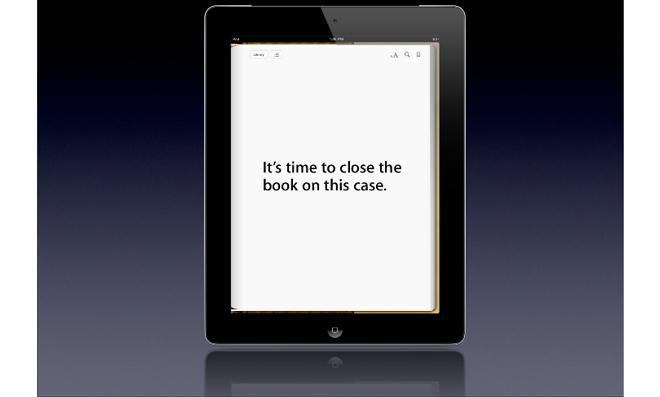Apple's feud with antitrust monitor continues; company accused of not cooperating in iBooks oversight
Tension between Apple and its court-appointed antitrust monitor continues to mount, as Michael Bromwich has accused the iPad maker of reducing its cooperating with his reviews of the company.
Bronwich has been assigned to keep tabs Apple's operations following an antitrust lawsuit won against the company by the U.S. government. And while Apple and Bromwich have not seen eye to eye from the start, in recent months the relationship has worsened, he said in a report to Judge Denis Cote, as noted by Reuters.
Bromwich told the judge that Apple has taken a more "adversarial tone" in recent discussions. In addition, he said that no interviews have been conducted since January, since Apple has rejected his requests.
Apple has taken issue with the extent of the investigations by Bromwich, alleging that his reviews have gone beyond the original intent by the court. Some outside of the company have agreed, including a circuit court judge and the editorial board of The Wall Street Journal.
In February, the Journal's opinion page slammed Bromwich's approach as being "major abuse, even by the standards of modern antitrust." The newspaper even alleged that Apple should sue Bromwich for his investigation, which has cost the company more than $2.65 million and has involved investigations into Apple's Siri, Maps and hardware engineering groups, none of which are related to the e-book antitrust lawsuit.
The U.S. government's ruling saddled Apple with an injunction that bars it from entering into any unsavory deals with publishers, and as antitrust monitor, Bromwich's job is to ensure that Apple follows those restrictions.
Apple officials have said they continue to fight the case out of principle, because the company insists that no illegal collusion took place between itself and book publishers.
At the time of the iBookstore's launch, Amazon accounted for nine out of every ten e-book sales, and titles were sold under the "wholesale model." In that model, resellers such as Amazon had the power to set prices, selling titles at or below costs if they chose to do so.
Under negotiations led by Eddy Cue, Apple and book publishers opted to switch to a so-called "agency" pricing model. This prevented content owners from being able to sell the same titles at a lower price elsewhere, without offering the same price on Apple's iBooks platform — a "most favored nations" clause.
Apple has argued that publishers openly discussed their desire to raise prices on books, as they felt titles were being sold for too little by Amazon under the wholesale model.
Tensions between Bromwich and Apple have been so high that the company officially request to have him removed. Its efforts were shot down by an appellate court, which found that the company failed to provide evidence of irreparable harm.
Last April, Bromwich suggested matters had improved, telling the court that relations between himself and Apple were better off.
 Neil Hughes
Neil Hughes












 Andrew Orr
Andrew Orr
 Sponsored Content
Sponsored Content
 Malcolm Owen
Malcolm Owen

 William Gallagher
William Gallagher

 Mike Wuerthele
Mike Wuerthele
 Christine McKee
Christine McKee







